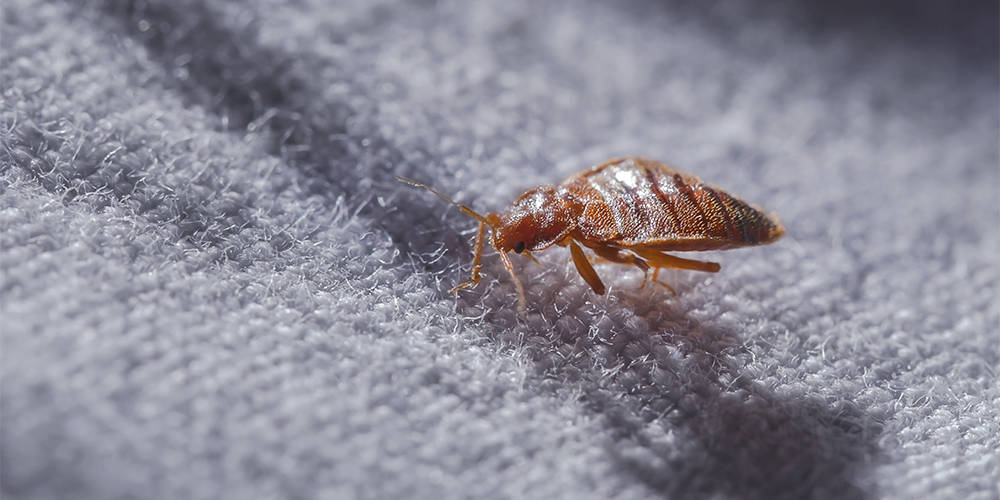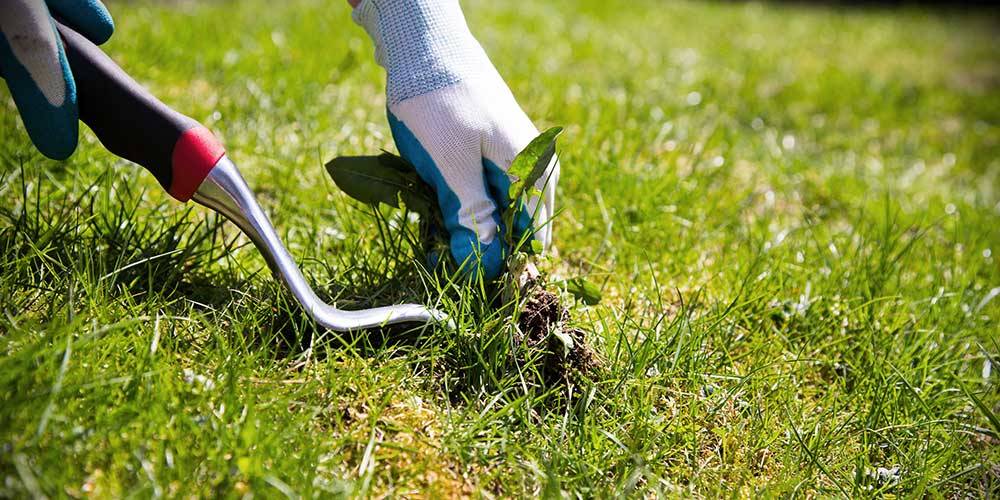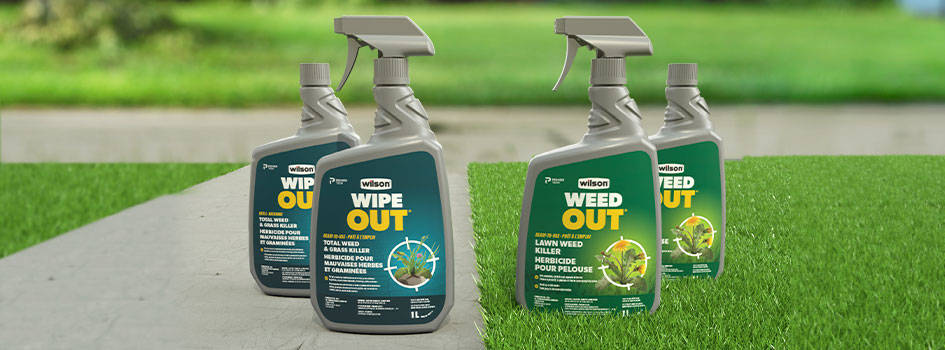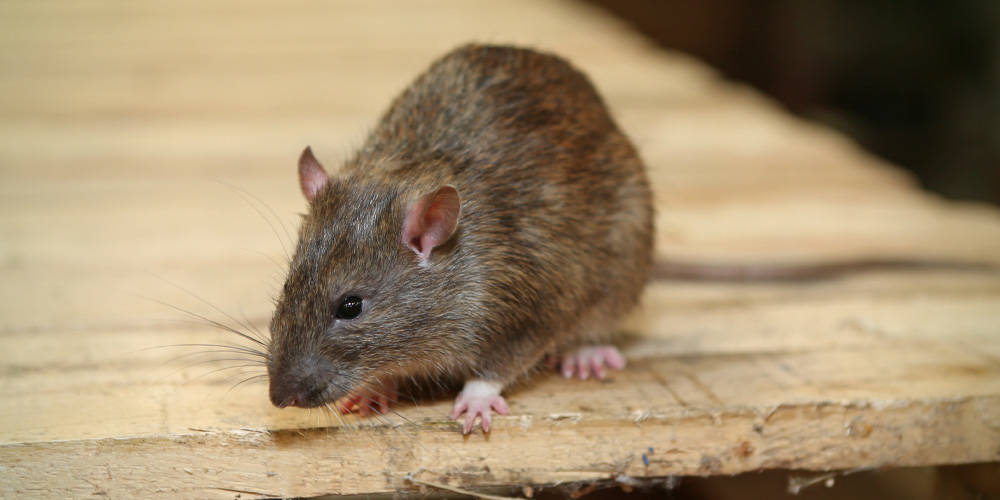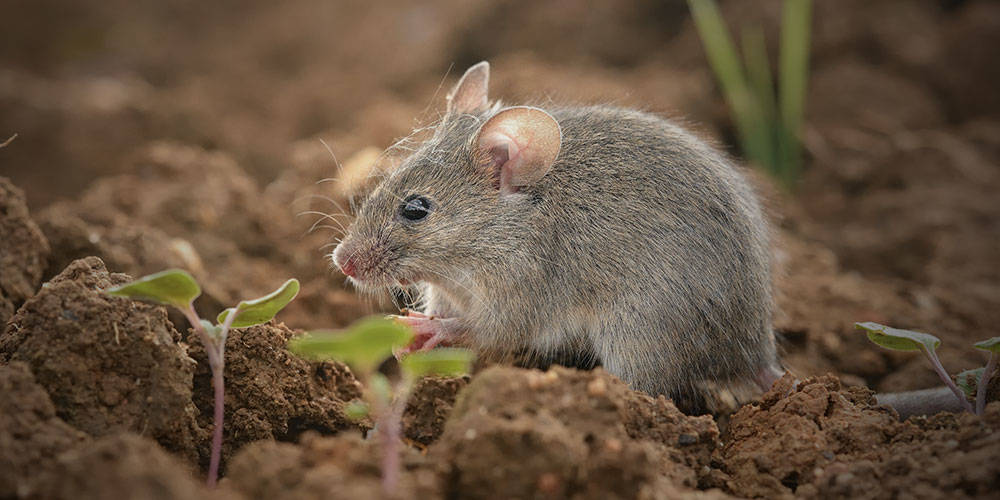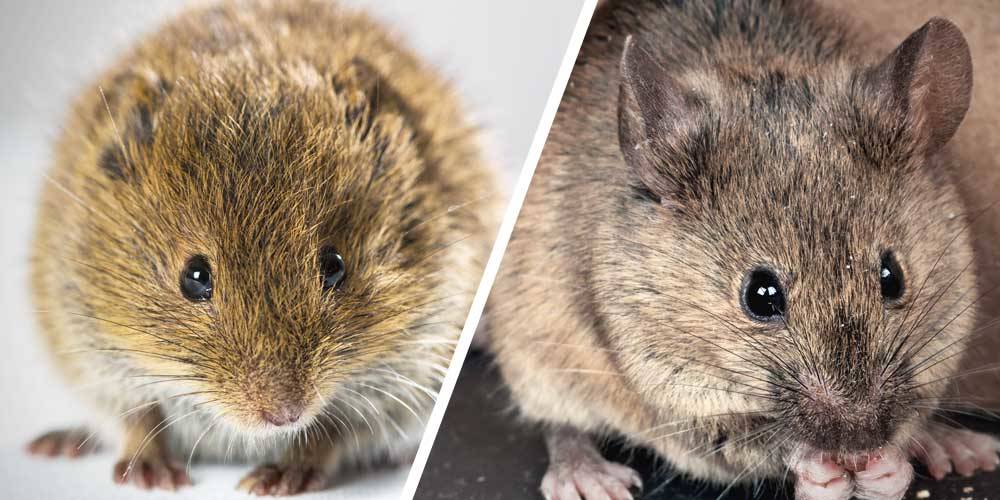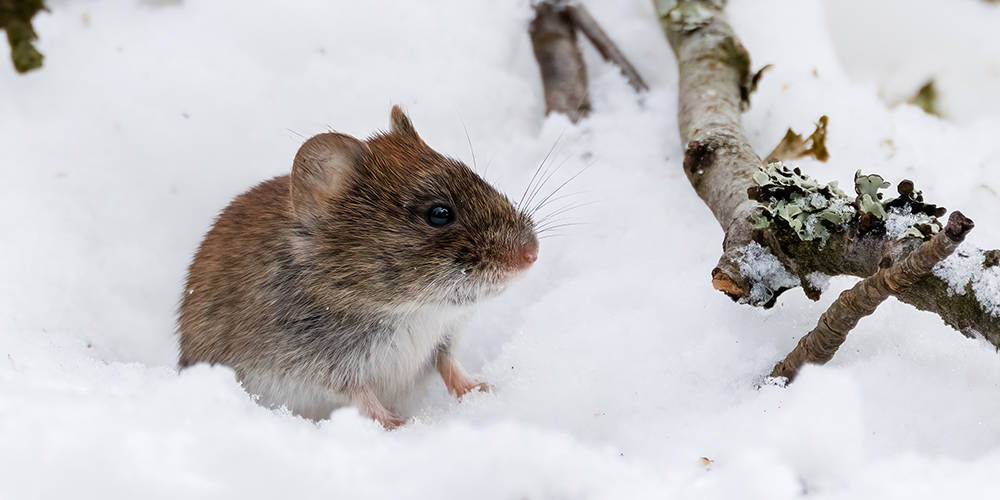Keeping mice out of your home
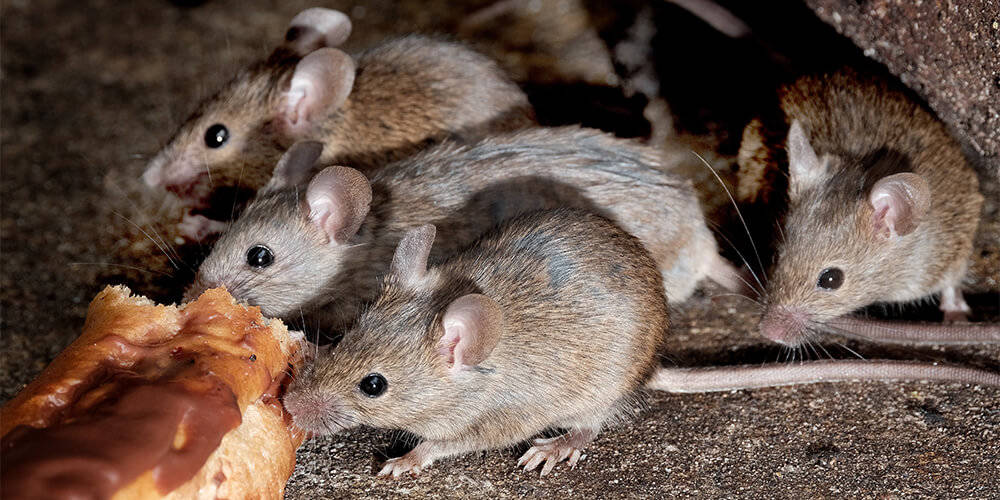
Every fall, mice gravitate from their outdoor world towards buildings, seeking shelter for the winter. Mice do not hibernate, rather they remain active all winter. They can live outdoors all winter, foraging for food and disappearing into their nests beneath the blanket of snow.
But with an option to hunker down in a nice, warm house over having to tunnel through snow drifts and scrounging for frozen seeds, they will always look for the house.
Is it normal to have a mouse in your house?
Mice like to make their winter home close to a food source and build their nest in quiet areas that are free of human activity and predators.
The spaces behind walls are a favourite. They get in through the smallest of cracks in your building. Also, attics are good spots for them, as there is plenty of insulation that can be used for nesting material there. And you don’t hear them scurrying about. They simply scale up the tree and branches that are touching your house and find their way in.
What attracts mice to your home?
Mice will gather and store food throughout the fall and store their reserves near their new nest area. They will gather and hoard nuts and seeds from trees, pet food, bird seed, organic waste, etc. from the outdoors, and stash them indoors for their winter cache.
If they run out, well, there is always food and water in your house…
Mice pose a serious health and safety concern
They cause unsanitary conditions by contaminating surfaces and stored food products (like cereal, seeds and sweet liquids) that they encounter, and they can spread disease.
Mice can cause serious damage to personal belongings and structural damage to homes or buildings with their constant chewing. A mouse can chew through many materials including paper, cardboard, drywall, wood, plastic, vinyl and even mortar. It has a reputation for chewing on electrical wires, which can cause a short circuit, resulting in fire.
How long does it take for mice to multiply during winter?
In the outdoors, mice tend to breed from February to October. The average mouse lives up to one year.
Females can produce litters of 5-6 babies up to 8 times a year. Gestation occurs only 3 weeks after breeding, and those little ones will reach maturity in 3 months. And guess what? The mothers can be bred again right after giving birth!
Consider that once in the warmth of your home with food and water nearby, she will continue to have litters all winter. So, the absolute best approach is to keep them from entering your house in the first place.
Easy tips to prevent mice inside the house
Every fall, check the exterior of your house. Look for possible points of entry: remember a mouse can squeeze through the tiniest of cracks. With their ability to chew on most surfaces, they can turn a slim crack into a bigger access to make their excursions in and out easier.
Here are the things to do…
Block their entry
- Place a metal mesh on intake or exhaust vents (gas, dryer, HVAC, oven range hood, etc.).
- Wherever these vents exit the home, if required, put fresh outdoor caulking to ensure a tight seal to the building.
- Check where all cables, water or gas pipes, air conditioning equipment, etc. enter the home. Caulk each opening as needed.
- Seal any other cracks and holes on the foundation outside the home.
- Repair damaged screens on doors and windows.
- Check exterior door sweeps and install new ones so there is no gap between the floor and door.
- Inspect caulking around windows and door frames, and patch if necessary.
- Repair loose mortar and weather stripping.
- Keep an eye out for gaps in the siding and the soffit/fascia gaps with the roof. Fix as needed.
- Prune any branches that are touching your building.
- Keep bird feeders as far away from the house as possible.
- Opened garage doors are an unrestricted invitation to mice. Get in the habit to keep them closed immediately after entering or exiting with your car. Same goes with the side door. Ensure that weather seals on the bottom and the sides are in good shape.
- Keep grass cut along foundation.
Eliminate food sources… if mice can’t find food, they won’t stay
- Transfer pet food and bird food into airtight containers immediately after purchase.
- All soft bag and fibreboard containers (sugar, flour, pancake mix, cereal, crackers, etc.) should be stored in tightly sealed plastic, glass or metal containers.
- Clean up crumbs or food scraps on floors and countertops.
- Never leave uneaten pet food and water bowls overnight on the floor. That will become a feast for mice at nighttime!
- If you have a pet bird, sweep up any seeds that may have fallen beneath the cage.
- Try to clean behind appliances a little more regularly during the winter months, as these areas become favourite hiding and feeding spots.
- Dispose of indoor kitchen garbage daily, don’t let it pile up. Store it in tight garbage cans outside the house.
- Eliminate any potential water sources, such as leaky taps, sweating pipes and open drains.
Eliminate hiding spots for mice
- Store firewood off the ground if possible and away from the house.
- Keep garages and car ports clutter-free.
- Mice like to hide, so any clutter in a home or basement offers plenty of opportunity for moving in.
Make your house unwelcome with rodent control products
- Irritate mice by using sonic repellers on all floors. These do work in deterring mice. Check the square foot coverage on the label and put enough of them in to cover your indoor area.
- Use mouse traps in areas of activity. Traps can be “catch & release” types, or instant kill spring types. Monitor them regularly and dispose live ones far away, and dead ones in a ziplock bag in household garbage.
- You can also use poison bait stations, which will kill them a few days after consumption. Be aware that they often die in their nest in the walls, so there might be an offensive odour for a few days.
- If you are successful at catching mice, reset the traps or bait stations a few weeks later to catch any young ones that may have grown up from the nest.
- Mice detest the smell of moth balls. Use moth ball packets in the attic to deter them, where the smell won’t waft into the house.
- There are several essential oils that have been used to deter mice, such as peppermint oil, eucalyptus oil, cayenne, citronella, etc. Also, some people claim success using vinegar, ammonia, bleach, etc. Dap several cotton balls with any of these items, place them in areas where mice congregate. The effect doesn’t last too long, so refresh them every couple of days.
- If you think you have a persistent problem, consider getting a cat.

